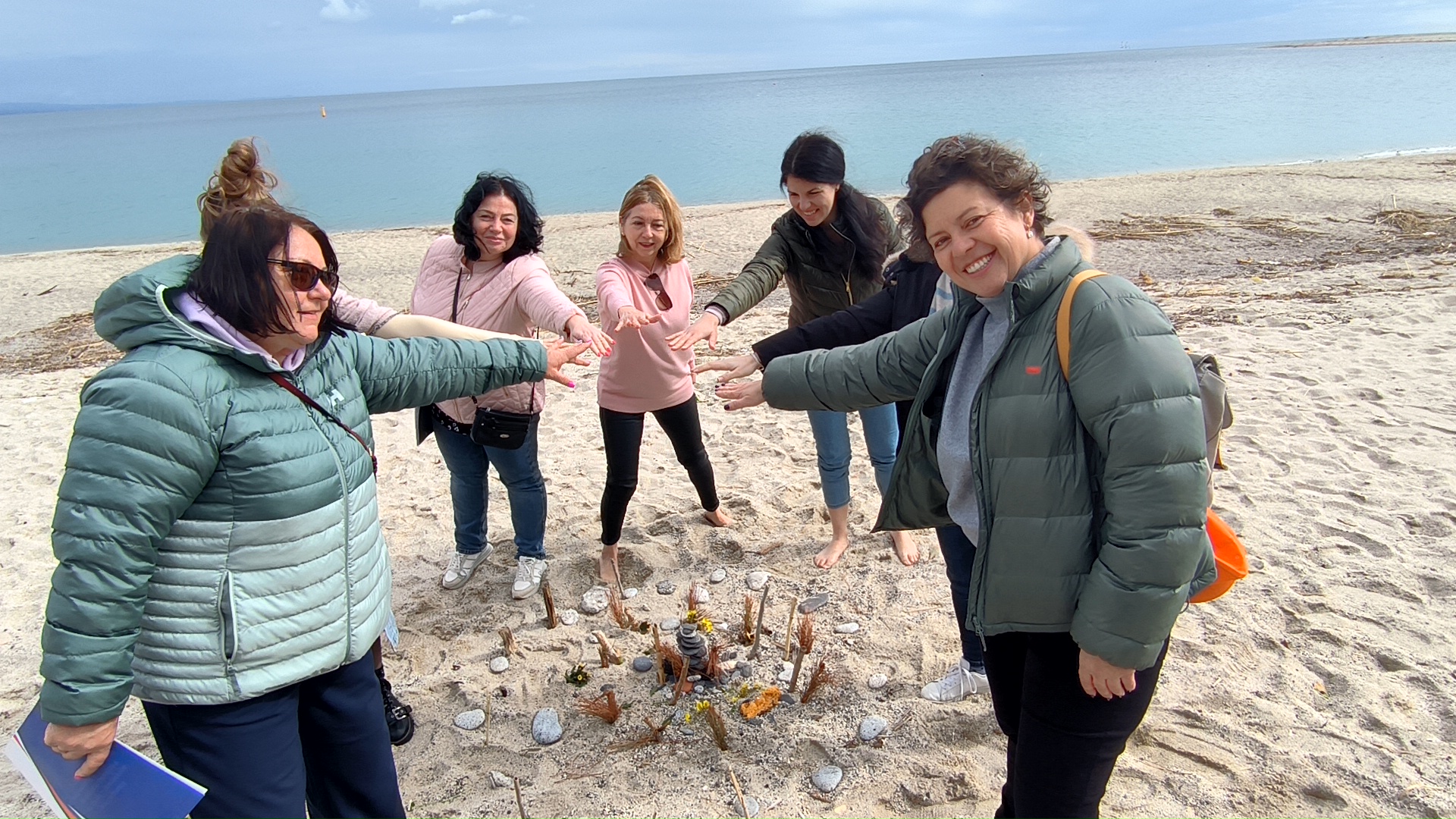During the week of 23 February to 2 March 2025, JUMP Academy Professional Training had the pleasure of hosting 7 teachers from Latvia, Spain and Romania. Several themes were addressed: outdoor learning, outdoor education, job shadowing.
Exploring the world through outdoor learning: how Outdoor Learning, Outdoor Education and Job Shadowing transform the educational experience’.
In today’s educational context, learning is no longer limited to traditional classrooms. More and more schools and institutions are embracing the concept of outdoor learning, where learning takes place outdoors, exploiting natural resources and stimulating students’ curiosity in unconventional environments. But outdoor education is not just about exploration; it is an approach that encourages the connection between theory and practice, as evidenced by the growing popularity of job shadowing, an opportunity for students to immerse themselves in the world of work by observing professionals in action.
These educational approaches, when integrated together, offer young people a unique learning experience where nature, practical experience and personal discovery come together to prepare future leaders for an ever-changing world. In this article, we will explore how the combination of outdoor learning, outdoor education and job shadowing can help shape individuals who are more aware, competent and ready to face the challenges of tomorrow.
On 27 February, a session was conducted with the following topics: circle of life, feeling nature, gratitude scavanger hunt, mindfulness short moment on the beach with creation of Mandala; topics linking outdoor learning and what nature conveys to us in connection with emotions.
Much has been based on the feelings we get from our surroundings.
Methods were introduced to explain how the world sounds different.
Being immersed in nature and practicing meditation are two activities that offer numerous benefits both physically and mentally, and are closely connected to overall well-being.
Meditation in nature amplifies its benefits. The silence and serenity of the natural environment create an ideal setting for practicing meditation. At the same time, being immersed in nature can facilitate a deeper meditation, thanks to the interaction with pleasant sensory stimuli such as the song of birds, the rustling of leaves, and the scent of flowers.
In summary, both experiences, nature and meditation, contribute to improving physical and mental well-being and creating a deeper connection with the world around us. Incorporating them into daily life, even for just a few minutes a day, can bring enormous benefits.
At the end, we divided the teachers into 2 groups, told them to write a lesson plan and simulate it as if they had their students in front of them, with some of the topics covered during the week.
The lesson plan is an educational tool specifically designed to facilitate the organized construction of content. Each teacher has planned a lesson on one of the topics covered in a quick and intuitive way.
In conclusion, we can say that outdoor education and outdoor learning are not simply alternative methods, but powerful tools that enrich the educational experience, helping students develop practical, emotional, and social skills. Outdoor learning promotes a deeper connection with nature, stimulates creativity and curiosity, and encourages autonomy and collaboration. It is a unique growth opportunity that offers young people an experience that cannot be replicated in the classroom.
Investing in outdoor education is not only about forming more environmentally aware students, but also preparing them to become responsible and resilient global citizens.
Author: Enza Procopio, JUMP Team


